Meredith Sue Willis's
Books for Readers # 197
July 12, 2018
When possible, read this newsletter online in its permanent location.
Back Issues MSW Home About Meredith Sue Willis Contact
.
Latest Meredith Sue Willis news:
Post up on WVU Press's blog, "Booktimist."
Review of MSW's website at Woven Tale Press Central, the web presence of Woven Tale Press.
Book tour with Their Houses in September! I'll be visiting Huntington, WV, Fairmont, Parkersburg, Shinnston,Morgantown, Clarksburg, and Shepherdstown.
Excellent pre-review of Their Houses from Foreword
Contents of Issue #197 Books for Readers:
Two Books by Chimamanda Ngozi Adichie
Delta Wedding by Eudora Welty
Middlemarch Again
Edwina Pendarvis on Gretel Ehrlich
Follow up to Previous Issues
Reviews and Short Takes
One More on Hillbilly Elegy
Manhattan Beach by Jennifer Egan
The Color of Lies by Donna Meredith
Thug Lovin' by Wahida Clark
The Round House by Louise Erdrich
Fools by Joan Silber
Amy Stewart Mysteries
Ron Chernow's Alexander Hamilton
Things to Read & Hear Online
Announcements and News
Anthologies of Appalachian Writing
Irene Weinberger Books
Meredith Sue Willis's
Books for Readers # 197
If you are reading this newsletter, then you are invited to send me a review of a book you like--or hate! I'll take any kind of book, but have some preference for ones that are not getting a lot of play in the media. That includes older books and overlooked books as well as small press, university press, micromini press and self-published books-- anything you want people to read or know about. You have all the rights to your review, so feel free and even encouraged to post it on Amazon.com or Goodreads or wherever else you'd like.The books I review myself include ones that are popular and commercially published, although those generally only get short notes from me. I have never tried to keep up with all the terrific books being published, but I do like to read books I've missed. Thus, some of my recent reading includesChimamanda Ngozi Adichie's Half of a Yellow Sun and Louise Erdrich's The Round House among others. I also try to make occasional forays beyond my comfort zone, as I did with Wahida Clark's Thug Lovin'. Also, this issue I once again have something to say about Victorian novels (Middlemarch one more time!).First up this issue is Eddy Pendarvis's review of This Cold Heaven: Seven Seasons in Greenlandby Gretel Ehrlich. (There's also a short review by Pendarvis of The Color of Lies by Donna Meredith).As usual, reviews and comments with no other name attached are by MSW.
A Definitely Unparadisaical Heaven: Edwina Pendarvis Reviews This Cold Heaven: Seven Seasons in Greenland by Gretel Ehrlich
I never would have picked up Gretel Ehrlich’s This Cold Heaven: Seven Seasons in Greenland if I’d come across it in a bookstore. I have no special interest in travel books and very little curiosity about Greenland, a country my college roommates years ago referred to facetiously as “the sleeping giant” in their many rounds of “Risk” (a board game that has players represent different nations and vie for global domination).Ehrlich’s book showed up in a stack of used books a friend gave me to look through in case I wanted to read any of them. Of the books she sent, This Cold Heaven had the prettiest cover, so I started reading that one. The first few pages didn’t impress me much, as the author seemed to strain after metaphors. Either I grew accustomed to them or she left off a little; but by the second chapter, I was hooked on her striking tale of travels on the coldest and darkest island in the world.I’m still not sure why I liked the book so much. As I read, I wondered if maybe it just made me glad not to be in Greenland. But that wasn’t the main reason. I learned a whole lot about what life is like ina world that I came to see as both beautiful and implacable in its resistance to domestication. The Greenland Ehrlich describes seems so imposing and austere in its beauty that it must be the opposite of Eden. It made me think about Mary Shelley’s Frankensteinand why her monster fixed on the frozen north for his end. But the contrast between the icy surroundings and the warmth of the people who populate Ehrlich’s adventures is central to its appeal. Her story includes Inuits who take her along on hunts and long-distance travels by dogsled; and, in a surprising narrative move, she intersperses her account of seven seasons in Greenland with accounts from the journals of the Danish-Inuit explorer, Knud Rasmussen, who spent seven years journeying in Greenland and across the far north in the early twentieth century. This technique allowed her to enliven her story with the exploits of Rasmussen and his comrades and to compare the lifeways he found with those she found nearly a hundred years’ later. The book is filled with exciting tales of wandering across the ice, falling into bone-chilling water, near-starvation, and the bravery of people willing to risk life and limb to survive there.
Another appeal of the book for me was trying to figure out what drove the author to love Greenland so much that she endured the kind of discomforts she described. She never completely won my trust, but she intrigued me and I definitely admired her boldness. Some “facts” I took with a grain of salt. For example, according to Ehrlich, the Inuit people she met belonged to a group that, wherever they live, from Alaska across Canada and in Greenland speak the same language and have done so for centuries. Knowing how quickly language changes across distances of space and time, I figured she was exaggerating some. A quick search on the Internet confirmed that there are Inuit “languages” not one Inuit language and that understanding of one group by another separated by much distance is not the case. She wasn’t completely off the mark, and whether they’re Inuit languages or Inuit dialects might be debatable; but she was romanticizing. On the other hand, I liked her matter-of-fact—neither prudish nor prurient—accounts of what could’ve been capitalized on: the communal and open attitudes toward sex that were common a century ago among the indigenous people who faced so much danger together.I guess what finally sums up my affection for her book is that Ehrlich introduced me to an exotic new geography and history, alien to ones I’d been familiar with. Even better, she made me feel the cold and darkness surrounding humans in the northernmost latitudes and, in contrast, the warmth of the human spirit facing up to death and disaster to get the most happiness possible out of a short stint on earth. Those gifts from the author (and from the friend who sent the books she’d finished) are a pretty fair exchange for the few days’ time spent reading a travel saga I happened onto.
Delta Wedding by Eudora Welty
I thought I was going to have trouble finishing this well-known novel because of Welty's casual racism. Part of the problem was that I couldn't separate Welty's own attitudes as she was writing in 1946 from those of the white characters of the novel, which is set in 1920's, on a plantation where the family (attractive and quirky and all those things we love about our whiteSouthern book characters) depends totally on their "Negroes." The problem is that the Fairchilds still think of the people who work for them as "theirs." The black people become a little more complex as the story goes on, but they aren't given any inner life.
I did keep reading, though, and in the end got caught up in this big snakeball of a novel.The Fairchilds are all presented as spoiled, charming, wildly attractive, and both imaginative and clannish. Many of them get a point of view, including Ellen the mother, who is not a blood Fairchild. She can't be much over forty but has had ten pregnancies. She reminds me with her delicate and sharp perceptions of the mother in Virginia Woolf's To the Lighthouse. Another important point-of-view is from Laura, the visiting orphaned girl whose mother was a Fairchild.The novel is held together nicely by a tight time frame (just over a week) and by the wedding (Dabney's to someone "unsuitable," the plantation overseer from the mountains). Threads that lead us through the complex cast of characters include preparations for the wedding, a missing brooch Ellen wanted to wear for the wedding, her husband Battle and his fury over who his daughter is marrying, but also his inability to stand in the way of it. He loves his children fiercely and is constantly threatening to kill or at least beat them all.Another piece that comes back repeatedly is an incident when the family is walking on a railroad trestle, and the developmentally disabled cousin gets her foot caught in the track. Heroic George stays with her-- but the train stops just in time. Robbie, who is married to George, sees the whole incident as George choosing family over her, and leaves him. But the novel has the ending of a classical comedy– Robbie comes back to George, there's the wedding. All happy outcomes.Welty seems indulgent to these people who I found to be generally spoiled brats, but it's a fascinating story anyhow..For a review when it first came out, see the New York Times comments.Half of a Yellow Sun and Americanah by Chimamanda Ngozi Adichie
I loved Half of a Yellow Sun and admired but didn't love Americanah. Half of a Yellow Sun is a rich and broad war novel, about middle class Igbo people during the Biafran War period. Educated people who live with servants in lovely homes have to leave their places and struggle for food and share sanitary facilities with lots of others. Babies die of disease and starvation. People of no particular political involvement are assasinated.Two major point-of-view characters are Olanna and Ugwu, the former part of the intellectual elite of a university town and the latter a bright village boy who becomes a houseboy for Olanna and her partner.There is some less-than-spectacular plotting, especially the foreshadowing of coming events (I usually knew when a major character was going to be endangered or killed, or let live), but that is a minor flaw.Adichie handles beautifully all the important parts of her novel: how war looks on the ground to civilians as well as conscripted soldiers; small details of everyday life; indigenous methods for changing the course of events (how to make someone love someone else, etc.)She isn't afraid to include a white British male point-of-view character (Richard, who loves Olanna's twin sister Kainene), or to leave some things unexplained or mysterious. She takes on deeply disturbing moral dilemmas, like the gang rape Ugwu participates in while a conscripted soldier. There is also the mystery of what happened to Olanna's charismatic twin sister.What do we really know about each other across oceans and ethnic divides? We see images of some spectacular horror-- the bloated starving baby or the little body dead in the surf or the girl fleeing napalm with her clothes ripped off. This novel gives us people, and gives us the Biafran war.For me, Americanah has a feeling of having been written for an audience, with a deadline, while Yellow Sun seems to have been written for Adichie's personal past, for her parents, for her people.Don't get me wrong: Americanah amply demonstrates Adichie's gargantuan talent. If is innately interesting for what it says about color, race, all sorts of isms--and hair and beauty parlors! ButYellow Sun is a richer novel.Middlemarch, One More Time
(Also see Joel Weinberger's review in Issue # 192 and a note by Francine Prose about it.)
It is probably still my favorite novel of all time. Again I noted how 19th century literature is far more readable to methan it was fifty years ago– this is not about me being smarter or more patient, because I'm neither, but rather about having become accustomed to the rhythms of the prose, and also no longer afraid of not getting it.
On the other hand, the mystery is gone– that's the flip side (like when I was really young and fantasized about what a samovar was when I first read Tolstoy and Dostoyevsky). What in the past seemed final and tragic now seems to have much more to do with the constant changes of life and young people suffering and finding their wayThe saddest figure, in the end, is Lydgate, who dies young and disappointed (I'd forgotten the summaries at the end of what happened to people). His wife, Rosamund Vincy-Lydgate is in a lot of ways the villain of the piece, but also a wonderful example of a Victorian woman's distorted talents. She acts in totally certainty that her pretty face and perfect manners give her eternal moral high ground– and she is superbly persistent in getting what she wants.Dorothea seems much younger now, and also terribly impetuous. Yes, it would have been great if she had had more space to develop her talents and passions, but this reading I saw many more of her flaws. She represents, (along with Rosamund) the powerfully negative effects of how middle and upper class British women's lives were distorted by the rules of class and gender: "Marriage," Eliot writes of Dorothea, "which was to bring guidance into worthy and imperative occupation, never freed her from the gentlewoman's oppressive liberty: it had not even filled her leisure with the ruminant joy of unchecked tenderness. Her blooming full-pulsed youth stood there in a moral imprisonment which made itself one with the chill, colorless, narrowed landscape, with the shrunken furniture, the never-read books, and the ghostly stag in a pale fantastic world that seemed to be vanishing from the daylight." (Location: 3,903 in the e-book version).Bulstrode and Harriet Bulstrode are still wonderful in their little subplot, which I still think is one of the best parts of the book. This time I liked Will Ladislaw so much better than in my early readings. I think I originally bought into the "Italian with white mice" comment on him. I always thought he was too light and curly for Dorothea, but that was mostly my romantic over-estimation of her. True, the perfect match for doing good in the world would have been Dorothea and Lydgate paired up, but that's part of the conscious theme of the book: how marriage can break as well as make people (Fred Vincy's love of Mary Garth and their marriage will certainly make something of him).I was also struck this time by how funny Eliot is– it's a heavy kind of humor, sometimes laboriously built up, but still much funnier than she gets credit for. Sharp, witty Mrs. Cadwallader and her laid-back clerical husband are entertaining and completely believable. Eliot rather idealizes the Garth family, especially Caleb (who supposedly was based on Eliot's father, as was, in part, Adam Bede of the eponymous novel.)It's really the story of a community, as the name implies as well as a study of marriage– real, in-process marriages, not happy endings. It's a love story with lots of obstacles, there is a little melodrama, some science.I get it that 21st centurions find it too heavy, too long, but. oh, it's a pleasure to me to dwell in that place for a while.
FOLLOW UP ON PAST ISSUES:
Carole Rosenthal writes, "I always liked Last Exit to Brooklyn too (See our review of it here) and found it very moving back in the day. I even taught it one year; re: Vinnie as a name--lots of Vinnies and Marys in this book but they are not necessarily the same characters."SHORTER REVIEWS
Manhattan Beach by Jennifer Egan
I liked Manhattan Beach more than enough to recommend it, and I do. There was a lot of brouhaha about it being an historical novel (set mostly during WWII) after Egan's previous experimental novel in linked stories, A Visit from the Good Squad (that book included one story in the form of a power point presentation, for example) and also had a touch of science fiction.This one is solidly researched, and I enjoyed the world it creates, even if it feels a little clotted with detail. This novel is more conventional, too, than Goon Squad, in using the standard multiple third person point of view among her three main characters, giving each character a chapter or several chapters before switching off. They begin in a scene together and then separate and finally, with considerable satisfaction for the reader, reconnect. There is also one crucial and skillfully handled chapter in the middle which has multiple points of view among two of the main characters and one character's disabled younger sister. The younger sister's sudden awakening from a kind of existential boredom is really stunning.It sometimes has, for me, a self-consciousness the mars the illusion. That is, Egan rarely lets you forget for long how skillful and brilliant she is and how much effort went into creating the world. But more often than not, I was totally engrossed: the ship wreck and its aftermath; Anna as a little girl; one really knock-out sexual encounter. I just liked the parts where I got lost in the novel more than the times when I stood back and admired the technique.For a longer review, see the one in The Atlantic.
The Round House by Louise Erdrich
This is very strong, with a mostly thirteen year old boy first person narrator who is sometimes older, reconstructing his thirteen year old self and occasionally telling us what happens to the other people-- who he marries, who lives and who dies. This does not. however, mar the suspense of what isgoing to happen in the summer of the novel. It is also satisfying for having a real political theme-- the failure of the law to prosecute rapes of Native American women. There is a lot about modern tribal life and--probably most fascinating to me-- about people who move in and out between Indian and white worlds. There is a white girl who was adopted into a Chippewa family who is one of a set of white twins. The one raised white turns out to be a monster, and the one raised as an Indian, in spite of being stunted in many ways, is the opposite of her twin.
There is bad behavior and monstrous behavior and half reconstructed tradition and powerful tribal bonds and acceptance of dream meanings and visions and ghosts. Beautifully structured and really excellent.For more, check out the reviews from The New York Times and The Guardian.
Hillbilly Elegy by J.D. Vance
I finally gave in and read it. It is, in fact, better than I expected, as long as you read it as the memoir of a young person. If Vance had just told his story, it would have been sad and a little uplifting and fascinating in its particularities. But Vance makes what I consider the enormous error of extrapolating from his experience to vast generalities about Appalachians. This is best in its comments on the psychology of a damaged but also well-loved young man who has become a real American success. He is at pains to claim that he is still a hillbilly, even if he shops at Whole Foods and usually controls his impulse to fight physically if his honor seems impugned.What I actually like best is his portraits of the people around him who did not end up at Yale Law School, who made changes in their lives and have had solid successes of a far less spectacularly kind: his grandfather stopped drinking and became an essential support of his family. Vance's aunt ran away to an abusive marriage, but left it and founded a family with a kind man. Vance's sister also got pregnant early, married, and seems to be living the kind of striving and loving life that surrounds us quietly even in the highest crime and drug neighborhoods in the country.There are, in other words, a lot of ways of having a fulfilling life besides going to Yale Law School and learning the ins and outs of life among the elite. It's a decent story, but just not everything Vance wants it to be.See Denton Loving's review of the book in this newsletter , and also take a look at my notes on Ramp Hollow, which sets out an interesting theory for how some of the so-called hillbilly folkways came to be.
Edwina Pendarvis on Donna Meredith's The Color of Lies
Donna Meredith's The Color of Lies is about a teacher in a school in Georgia where most of theteachers (including the novel's protagonist) are white and most of the students are black. The teacher is a widowed mother of two sons and she is the daughter of an alcoholic father (his wife, her mother, is dead).
Meredith manages to raise lots of serious issues and have her vulnerable but quite competent, slightly overweight female lead confront them in very human ways. One of the things I like about the book, is her sort of placing in parallel the daughter's overeating with her father's alcoholism. She doesn't come out and say "think about these two frailties and what they have in common" just as she doesn't get preachy over any of the big issues that are raised in the story. Really relevant to so much that goes on in schools everywhere these days. This book is worth reading for entertainment and for thinking about what's right and wrong in the situations. I hope some teachers pick it up for their professional development book groups!Thug Lovin' by Wahida Clark
Thug Lovin is what is usually called urban or street lit, but with a romance angle. The author,Wahida Clark, has herself spent time in prison and is now also a publisher and motivational speaker as well as a writer. This is actually #4 in a series with some of the same characters. The sex is explicit, vulgar, and obvious, and also very hot! But there is equally explicit description of brands of cars, clothes, alcohol, high end drugs, clubs and dancing, and travel.
The main characters are married and starting a family, which interested me, and they aspire to fidelity and love, but there is inevitably with this setting, infidelity.There are also sudden nodules of violence. Trae, the romantic lead and mostly loving husband, is also a stone cold killer. He murders the man who killed his friend (okay, that has a kind of moral excuse), and he also puts down a probably schizophrenic woman who is in his way.The marriage begins to fall apart, mostly because no one can ever say no to sex.What I can't figure out is if this is supposed to show what it calls "thug life" in a way to keep young people out of it, or is it really making thug life attractive? Power, sex, consumer goods, more sex. It is egalitarian in that its women seem to want "dick" as much as men want "pussy." There is a lot of action, but it sounds exhausting to me. Surely these 30 something characters will either get dead or old someday soon.Fools by Joan Silber
This is a book of short stories very loosely linked. A Florida hotel appears a couple of times; an apparently-shallow Frenchwomancommits a minor crime, but comes back matured and complex in the final story. There are several young male narrators and an appearance by Dorothy Day of the Catholic Worker in the first story.
The last story had a ending, but the worlds of the stories are thick enough and engaging enough that I wanted novels. I don't know if this is me or the book, that maybe four of the six seemed to have plenty of narrative for a complete book. So maybe I'm just straight up wrong (I always want things I like to last longer), or maybe Silber rejected ideas for novels and turned them, extremely efficiently, into stories.Anyhow, she's good, can give shape to anything, and cover long periods of time in the long story form with great aplomb.Girl Waits With Gun and Lady Cop Makes Trouble by Amy Stewart
The first book is better than the second one, which I read first (Lady Cop Causes Trouble). Girl Waits With Gun, seems more serious. There are flashbacks to how the main character Constance had an illegitimate daughter with a Jewish Singer sewing machine lover!), and there's an illegitimate baby in the plot as well, which gives an emotional connection to the crime fighting. The villain is a nasty Captain of Industry who abuses women and uses his goons to threaten and attack the Kopp sisters. Over the course of the book, Constance, who needs and wants a job but is frustrated by the limitations for a woman in 1915, begins to learn what will be her trade– how to sleuth.Sheriff Heath a good character, as is sister Norma and the supposed little sister Fleurette who is a theatrical teenaged seamstress.The second book felt lighter and thinner, but the research was fun, New Jersey and New York City in early days of World War I when New Jersey was still mostly bucolic. There is mention of labor struggles in the city of Paterson, and there is an appearance by "Dr. Williams," who I missed entirely was Dr. William Carlos Williams.Alexander Hamilton by Ron Chernow
I am not even going to try to do justice to this excellent biography (Lin-Manuel Miranda's source and inspiration for his wildly successful musical play). It is just super, and very, very long: I started reading iton a library-borrowed Kindle e-book and saw pretty quickly I had no chance of finishing it before the loan ran out, so I bought a cheap used hard copy online.
It's worth reading on many levels, but especially how it shows a time of incredible polarization of politics--yes, probably as ugly as now-- with feuds and scurrilous language and, of course, dueling, which is explained in enough depth that I think I've finally begun to get what it was about.No wonder we have wars.And of course, Hamilton's life story truly is amazing. He was brilliant in multiple ways, a fantastic mix of genius and occasional extreme bad judgement. He's the great voice of commerce and capitalism, but he's also personally honest, and a strong abolitionist. His great nemesis, Jefferson, is all about democracy, but of course, simultaneously a deep-dyed hypocrite who freed very few of the enslaved people who served him. Even among his children with Sally Hemings he only freed two formally, supporting the surreptitious disappearance of the two lightest skinned, who apparently passed into the white world.For more on the Hemingses, see my enthusiastic review of The Hemingses of Monticello.Talking about contradictions in Hamilton and the other Founders doesn't begin to capture the complexity, but Chernow's book is a tremendously worthwhile read.THINGS TO READ AND HEAR ONLINE
Francine Prose's Five Classics to Read and Re-read--one is Middlemarch, of course.
Literary Hub has links to 25 Alice Munro stories to read online! Wow.
Latest reviews from George Brosi's Appalachian Mountain Books
Climate Fiction
Just for fun: Title Generator for all genres: Obsidian Warrior and Demon and the Dark!
5 Tips for Writers by Mystery writer Laura Lippman
Two lovely stories about the connection between the elderly and the young as well as about Jewish life in the present day by writer by Lewis Brett Smiler:"The Old Rabbi" and "The Yiddish Burial Ceremony"
ANNOUNCEMENTS AND NEWS
Don't forget to subscribe to the CRWROPPS listserv for submissions opportunities.
Writing prompts and exercises from Poets & Writers.
My writing exercises.
Contests! See The Masters Review list of current contests.
Woven Tale Press's latest Literary and Art Competition.
Fiction Collective contest
Jeff Biggers' latest book is Resistance: Reclaiming an American Tradition, which came out on July 4th "Well-informed and witty...Biggers succeeds in showing how the long tradition of resistance movements
continues today."--Publishers Weekly "A widely ranging history of intellectual and moral resistance within American politics...The author writes clearly and with a firm grasp of historical comparison intimately focused on compelling figures." —Kirkus Reviews Jeff Biggers website
The following poems "Happiness" and "This Summer Day" were added to the "online poems" section of the Barbara Crooker website.
Welcome To Saint Angel by William Luvass has just gone up on Vimeo. In this David versus Goliath story for the 21st Century, small land owners take on greedy developers to save their rural homes. Bill Luvaas's novel is just out with Anaphora Literary Press and available on Amazon and elsewhere. The novel is a dead-serious comedy about development
gone mad and a rural community’s—sometimes lethal—battle to stop unscrupulous developers and drought deniers from turning their beloved high-desert home into a suburban nightmare. Iconoclastic inventor Al Sharpe and his zany friends must stand up to powerful adversaries to protect their land from the bulldozers. Part environmental fiction, part social satire, it speaks to the impact of heedless development on the natural environment and on people’s lives.
"In the mildly apocalyptical near future, a community of colorful high desert characters fight off developers and water thieves during CA's worst drought. These decent whackos...transcend their flaws with hilarious courage. SA is a painful, redemptive belly laugh and well worth it." - Doug Peacock, Environmental Activist, Author of Grizzly Years
ANTHOLOGIES OF APPALACHIAN WRITING
IRENE WEINBERGER BOOKS:
A NOTE ABOUT AMAZON.COM
I have a lot of friends and colleagues who despise Amazon. There is a discussion about some of the issues here in # 184, as well as older comments from Jonathan Greene and others here.
The largest unionized bookstore in America has a webstore at Powells Books. Some people prefer shopping online there to shopping at Amazon.com. An alternative way to reach Powell's site and support the union is via http://www.powellsunion.com. Prices are the same but 10% of your purchase will go to support the union benefit fund.
WHERE TO FIND BOOKS MENTIONED IN THIS NEWSLETTER
If a book discussed in this newsletter has no source mentioned, don’t forget that you may be able to borrow it from your public library as either a hard copy or as an ebook. You may also buy or order from your local independent bookstore. (To find a bricks-and-mortar store, click the "shop indie" logo left).
To buy books online, I often use Bookfinder or Alibris. Bookfinder gives the price with shipping and handling, so you can see what you really have to pay.
Another source for used and out-of-print books is All Book Stores. Also consider Paperback Book Swap, a postage-only way to trade books with other readers.
Ingrid Hughes suggests "a great place for used books which sometimes turn out to be never-opened hard cover books is Biblio. I've bought many books from them, often for $4 including shipping."
If you are using an electronic reader (all kinds), don't forget free books at the Gutenberg Project—mostly classics, and free, free, free!
Kobobooks.com sells e-books for independent brick-and-mortar bookstores.
RESPONSES TO THIS NEWSLETTER
Please send responses to this newsletter and suggestions directly to Meredith Sue Willis . Unless you request otherwise, your responses may be edited for length and published in this newsletter.
BACK ISSUES click here.
LICENSE
Books for Readers Newsletter by Meredith Sue Willis is licensed under a Creative Commons Attribution-NoDerivs 3.0 Unported License. Permissions beyond the scope of this license may be available at http://www.meredithsuewillis.com. Some individual contributors may have other licenses.
Meredith Sue Willis, the producer of this occasional newsletter, is a writer and teacher and enthusiastic reader. Her books have been published by Charles Scribner's Sons, HarperCollins, Ohio University Press, Mercury House, West Virginia University Press, Monteymayor Press, Teachers & Writers Press, Hamilton Stone Editions, and others. She teaches at New York University's School of Professional Studies.
BACK ISSUES:
#197 Joan Silber, Chimamanda Ngozi Adichie, Alexander Hamilton, Eudora Welty, Middlemarch yet again, Greta Ehrlich, Edwina Pendarvis.
#196 Last Exit to Brooklyn; Joan Didion; George Brosi's reviews; Alberto Moravia; Muriel Rukeyser; Matthew de la Peña; Joyce Carol Oates
#195 Voices for Unity; Ramp Hollow, A Time to Stir, Patti Smith, Nancy Abrams, Conrad, N.K. Jemisin, Walter Mosely & more.
#194 Allan Appel, Jane Lazarre, Caroline Sutton, Belinda Anderson on children's picture books.
#193 Larry Brown, Phillip Roth, Ken Champion, Larissa Shmailo, Gillian Flynn, Jack Wheatcroft, Hilton Obenziner and more.
#192 Young Adult books from Appalachia; Virginia Woolf's To the Lighthouse; Michael Connelly; Middlemarch; historical murders in Appalachia.
#191 Oliver Sacks, N.K. Jemisin, Isabella and Ferdinand and their descendents, Depta, Highsmith, and more.
#190 Clearman, Eyes Glowing at the Edge of the Woods, Doerr, Octavia Butler, Colson Whitehead, Miss Fourth of July, Goodbye and more.
#189 J.D. Vance; Mitch Levenberg; Phillip Lopate; Barchester Towers; Judith Hoover; ; Les Liaisons Dangereuses; short science fiction reviews.
#188 Carmen Ferreiro-Esteban; The Hemingses of Monticello; Marc Harshman; Jews in the Civil War; Ken Champion; Rebecca West; Colum McCann
#187 Randi Ward, Burt Kimmelman, Llewellyn McKernan, Sir Walter Scott, Jonathan Lethem, Bill Luvaas, Phyllis Moore, Sarah Cordingley & more
#186 Diane Simmons, Walter Dean Myers, Johnny Sundstrom, Octavia Butler & more
#185 Monique Raphel High; Elizabeth Jane Howard; Phil Klay; Crystal Wilkinson
#184 More on Amazon; Laura Tillman; Anthony Trollope; Marily Yalom and the women of the French Revolution; Ernest Becker
#183 Hilton Obenzinger, Donna Meredith, Howard Sturgis, Tom Rob Smith, Daniel José Older, Elizabethe Vigée-Lebrun, Veronica Sicoe
#182 Troy E. Hill, Mitchell Jackson, Rita Sims Quillen, Marie Houzelle, Frederick Busch, more Dickens
#181 Valerie Nieman, Yorker Keith, Eliot Parker, Ken Champion, F.R. Leavis, Charles Dickens
#180 Saul Bellow, Edwina Pendarvis, Matthew Neill Null, Judith Moffett, Theodore Dreiser, & more
#179 Larissa Shmailo, Eric Frizius, Jane Austen, Go Set a Watchman and more
#178 Ken Champion, Cat Pleska, William Demby's Beetlecreek, Ron Rash, Elizabeth Gaskell, and more.
#177 Jane Hicks, Daniel Levine, Constance Fenimore Woolson, Ken Chamption, Patricia Harman
#176 Robert Gipe, Justin Torres, Marilynne Robinson, Velma Wallis, Larry McMurty, Charlotte Brontë, Henry James, Fumiko Enchi, Shelley Ettinger
#175 Lists of what to read for the new year; MOUNTAIN MOTHER GOOSE: CHILD LORE OF WEST VIRGINIA; Peggy Backman
#174 Christian Sahner, John Michael Cummings, Denton Loving, Madame Bovary#173 Stephanie Wellen Levine, S.C. Gwynne, Ed Davis's Psalms of Israel Jones, Quanah Parker, J.G. Farrell, Lubavitcher girls
#172 Pat Conroy, Donna Tartt, Alice Boatwright, Fumiko Enchi, Robin Hobb, Rex Stout
#171 Robert Graves, Marie Manilla, Johnny Sundstrom, Kirk Judd
#170 John Van Kirk, Carter Seaton,Neil Gaiman, Francine Prose, The Murder of Helen Jewett, Thaddeus Rutkowski
#169 Pearl Buck's The Exile and Fighting Angel; Larissa Shmailo; Liz Lewinson; Twelve Years a Slave, and more
#168 Catherine the Great, Alice Munro, Edith Poor, Mitch Levenberg, Vonnegut, Mellville, and more!
#167 Belinda Anderson; Anne Shelby; Sean O'Leary, Dragon tetralogy; Don Delillo's Underworld
#166 Eddy Pendarvis on Pearl S. Buck; Theresa Basile; Miguel A. Ortiz; Lynda Schor; poems by Janet Lewis; Sarah Fielding
#165 Janet Lewis, Melville, Tosltoy, Irwin Shaw!
#164 Ed Davis on Julie Moore's poems; Edith Wharton; Elaine Drennon Little's A Southern Place; Elmore Leonard
#163 Pamela Erens, Michael Harris, Marlen Bodden, Joydeep Roy-Battacharya, Lisa J. Parker, and more
#162 Lincoln, Joseph Kennedy, Etel Adnan, Laura Treacy Bentley, Ron Rash, Sophie's Choice, and more
#161 More Wilkie Collins; Duff Brenna's Murdering the Mom; Nora Olsen's Swans & Klons; Lady Audley's Secret
#160 Carolina De Robertis, The Immortal Life of Henrietta Lacks, Ross King's The Judgment of Paris
#159 Tom Jones. William Luvaas, Marc Harshman, The Good Earth, Lara Santoro, American Psycho
#158 Chinua Achebe's Man of the People; The Red and the Black; McCarthy's C.; Farm City; Victor Depta;Myra Shapiro
#157 Alice Boatwright, Reamy Jansen, Herta Muller, Knut Hamsun, What Maisie Knew; Wanchee Wang, Dolly Withrow.
#156 The Glass Madonna; A Revelation
#155 Buzz Bissinger; reader suggestions; Satchmo at the Waldorf
#154 Hannah Brown, Brad Abruzzi, Thomas Merton
#153 J.Anthony Lukas, Talmage Stanley's The Poco Fields, Devil Anse
#152 Marc Harshman guest editor; John Burroughs; Carol Hoenig
#151 Deborah Clearman, Steve Schrader, Paul Harding, Ken Follet, Saramago-- and more!
#150 Mitch Levenberg, Johnny Sundstrom, and Isabel Wilkerson's The Warmth of Other Suns.
#149 David Weinberger's Too Big to Know; The Shining; The Tiger's Wife.
#148 The Moonstone, Djibouti, Mark Perry on the Grimké family
#147 Jane Lazarre's new novel; Johnny Sundstrom; Emotional Medicine Rx; Walter Dean Myers, etc.
#146 Henry Adams AGAIN! Also,Fun Home: a Tragicomic
#145 Henry Adams, Darnell Arnoult, Jaimy Gordon, Charlotte Brontë
#144 Carter Seaton, NancyKay Shapiro, Lady Murasaki Shikibu
#143 Little America; Guns,Germs, and Steel; The Trial
#142 Blog Fiction, Leah by Seymour Epstein, Wolf Hall, etc.
#141 Dreama Frisk on Hilary Spurling's Pearl Buck in China; Anita Desai; Cormac McCarthy
#140 Valerie Nieman's Blood Clay, Dolly Withrow
#139 My Kindle, The Prime Minister, Blood Meridian#138 Special on Publicity by Carter Seaton
#137 Michael Harris's The Chieu Hoi Saloon; Game of Thrones; James Alexander Thom's Follow the River#136 James Boyle's The Creative Commons; Paola Corso, Joanne Greenberg, Monique Raphel High, Amos Oz
#135 Reviews by Carole Rosenthal, Jeffrey Sokolow, and Wanchee Wang.
#134 Daniel Deronda, books with material on black and white relations in West Virginia
#133 Susan Carpenter, Irene Nemirovsky, Jonathan Safran Foer, Kanafani, Joe Sacco
#132 Karen Armstrong's A History of God; JCO's The Falls; The Eustace Diamonds again.
#131 The Help; J. McHenry Jones, Reamy Jansen, Jamie O'Neill, Michael Chabon.
#130 Lynda Schor, Ed Myers, Charles Bukowski, Terry Bisson, The Changing Face of Anti-Semitism
#129 Baltasar and Blimunda; Underground Railroad; Navasky's Naming Names, small press and indie books.
#128 Jeffrey Sokolow on Histories and memoirs of the Civil Rights Movement
#127 Olive Kitteridge; Urban fiction; Shelley Ettinger on Joyce Carol Oates
#126 Jack Hussey's Ghosts of Walden, The Leopard , Roger's Version, The Reluctanct Fundamentalist
#125 Lee Maynard's The Pale Light of Sunset; Books on John Brown suggested by Jeffrey Sokolow
#124 Cloudsplitter, Founding Brothers, Obenzinger on Bradley's Harlem Vs. Columbia University#123 MSW's summer reading round-up; Olive Schreiner; more The Book Thief; more on the state of editing
#122 Left-wing cowboy poetry; Jewish partisans during WW2; responses to "Hire a Book Doctor?"
#121 Jane Lazarre's latest; Irving Howe's Leon Trotsky; Gringolandia; "Hire a Book Doctor?"
#120 Dreama Frisk on The Book Thief; Mark Rudd; Thulani Davis's summer reading list
#119 Two Histories of the Jews; small press books for Summer
#118 Kasuo Ichiguro, Jeanette Winterson, The Carter Family!
#117 Cat Pleska on Ann Pancake; Phyllis Moore on Jayne Anne Phillips; and Dolly Withrow on publicity
#116 Ann Pancake, American Psycho, Marc Harshman on George Mackay Brown
#115 Adam Bede, Nietzsche, Johnny Sundstrom
#114 Judith Moffett, high fantasy, Jared Diamond, Lily Tuck
#113 Espionage--nonfiction and fiction: Orson Scott Card and homophobia
#112 Marc Kaminsky, Nel Noddings, Orson Scott Card, Ed Myers
#111 James Michener, Mary Lee Settle, Ardian Gill, BIll Higginson, Jeremy Osner, Carol Brodtick
#110 Nahid Rachlin, Marion Cuba on self-publishing; Thulani Davis, The Road, memoirs
#109 Books about the late nineteen-sixties: Busy Dying; Flying Close to the Sun; Looking Good; Trespassers
#108 The Animal Within; The Ground Under My Feet; King of Swords
#107 The Absentee; Gorky Park; Little Scarlet; Howl; Health Proxy #106 Castle Rackrent; Harry Potter and the Deathly Hallows; More on Drown; Blindness & more
#105 Everything is Miscellaneous, The Untouchable, Kettle Bottom by Diane Gilliam Fisher
#104 Responses to Shelley on Junot Diaz and more; More best books of 2007
#103 Guest Editor: Shelley Ettinger and her best books of 2007
#102 Saramago's BLINDNESS; more on NEVER LET ME GO; George Lies on Joe Gatski
#101 My Brilliant Career, The Scarlet Letter, John Banville, Never Let Me Go
#100 The Poisonwood Bible, Pamela Erens, More Harry P.
#99 Jonathan Greene on Amazon.com; Molly Gilman on Dogs of Babel
#98 Guest editor Pat Arnow; more on the Amazon.com debate
#97 Using Thomas Hardy; Why I Write; more
#96 Lucy Calkins, issue fiction for young adults
#95 Collapse, Harry Potter, Steve Geng
#94 Alice Robinson-Gilman, Maynard on Momaday
#93 Kristin Lavransdatter, House Made of Dawn, Leaving Atlanta
#92 Death of Ivan Ilych; Memoirs
#91 Richard Powers discussion
#90 William Zinsser, Memoir, Shakespeare
#89 William Styron, Ellen Willis, Dune, Germinal, and much more
#88 Sandra Cisneros's Caramelo
#87 Wings of the Dove, Forever After (9/11 Teachers)
#86 Leora Skolkin-Smith, American Pastoral, and more
#85 Wobblies, Winterson, West Virginia Encyclopedia
#84 Karen Armstrong, Geraldine Brooks, Peter Taylor
#83 3-Cornered World, Da Vinci Code
#82 The Eustace Diamonds, Strapless, Empire Falls
#81 Philip Roth's The Plot Against America , Paola Corso
#80 Joanne Greenberg, Ed Davis, more Murdoch; Special Discussion on Memoir--Frey and J.T. Leroy
#79 Adam Sexton, Iris Murdoch, Hemingway
#78 The Hills at Home; Tess of the D'Urbervilles; Jean Stafford
#77 On children's books--guest editor Carol Brodtrick
#76 Mary Lee Settle, Mary McCarthy
#75 The Makioka Sisters
#74 In Our Hearts We Were Giants
#73 Joyce Dyer
#72 Bill Robinson WWII story
#71 Eva Kollisch on G.W. Sebald
#70 On Reading
#69 Nella Larsen, Romola
#68 P.D. James
#67 The Medici
#66 Curious Incident,Temple Grandin
#65 Ingrid Hughes on Memoir
#64 Boyle, Worlds of Fiction#63 The Namesame
#62 Honorary Consul; The Idiot#61 Lauren's Line
#60 Prince of Providence
#59 The Mutual Friend, Red Water
#58 AkÉ, Season of Delight
#57 Screaming with Cannibals
#56 Benita Eisler's Byron
#55 Addie, Hottentot Venus, Ake
#54 Scott Oglesby, Jane Rule
#53 Nafisi,Chesnutt, LeGuin
#52 Keith Maillard, Lee Maynard
#51 Gregory Michie, Carter Seaton
#50 Atonement, Victoria Woodhull biography
#49 Caucasia
#48 Richard Price, Phillip Pullman
#47 Mid- East Islamic World Reader
#46 Invitation to a Beheading
#45 The Princess of Cleves
#44 Shelley Ettinger: A Few Not-so-Great Books
#43 Woolf, The Terrorist Next Door
#42 John Sanford #41 Isabelle Allende
#40 Ed Myers on John Williams
#39 Faulkner
#38 Steven Bloom No New Jokes
#37 James Webb's Fields of Fire
#36 Middlemarch#35 Conrad, Furbee, Silas House
#34 Emshwiller
#33 Pullman, Daughter of the Elm
#32 More Lesbian lit; Nostromo
#31 Lesbian fiction
#30 Carol Shields, Colson Whitehead
#29 More William Styron
#28 William Styron
#27 Daniel Gioseffi
#26 Phyllis Moore
#25 On Libraries....
#24 Tales of the City
#23 Nonfiction, poetry, and fiction
#22 More on Why This Newsletter
#21 Salinger, Sarah Waters, Next of Kin
#20 Jane Lazarre
#19 Artemisia Gentileschi
#18 Ozick, Coetzee, Joanna Torrey
#17 Arthur Kinoy
#16 Mrs. Gaskell and lots of other suggestions
#15 George Dennison, Pat Barker, George Eliot
#14 Small Presses
#13 Gap Creek, Crum
#12 Reading after 9-11
#11 Political Novels
#10 Summer Reading ideas
#9 Shelley Ettinger picks
#8 Harriette Arnow's Hunter's Horn
#7 About this newsletter
#6 Maria Edgeworth
#5 Tales of Good and Evil; Moon Tiger
#4 Homer Hickam and The Chosen
#3 J.T. LeRoy and Tale of Genji
#2 Chick Lit
#1 About this newsletter
.
Wednesday, July 11, 2018
Subscribe to:
Post Comments (Atom)
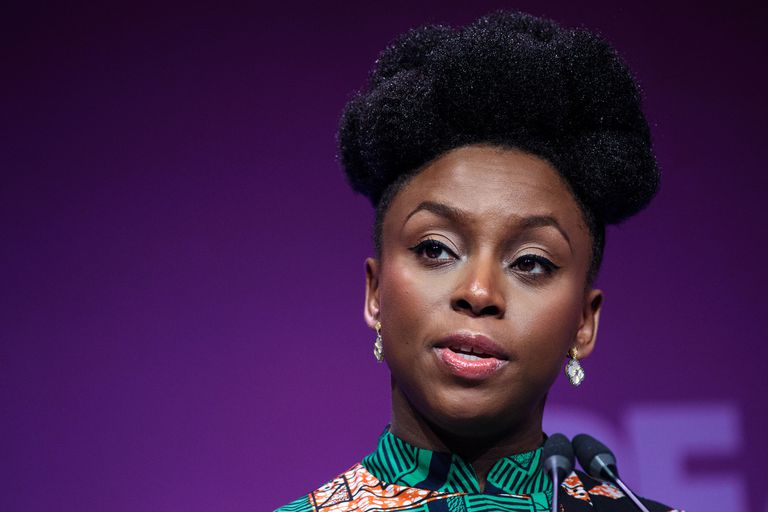
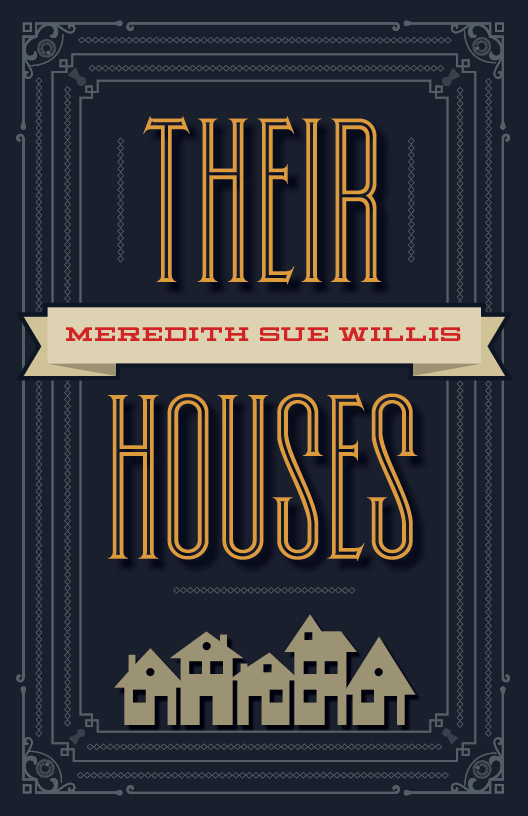

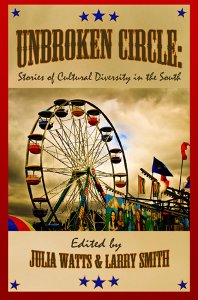
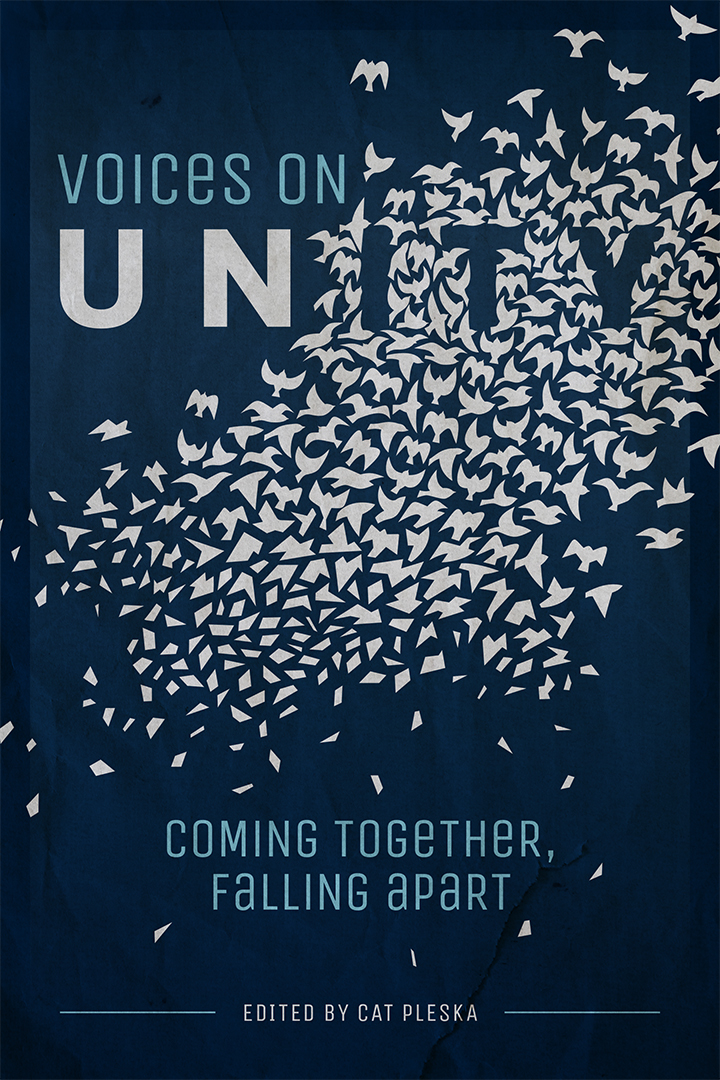
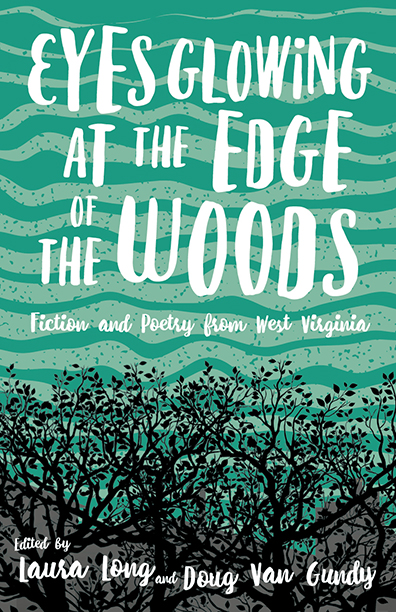
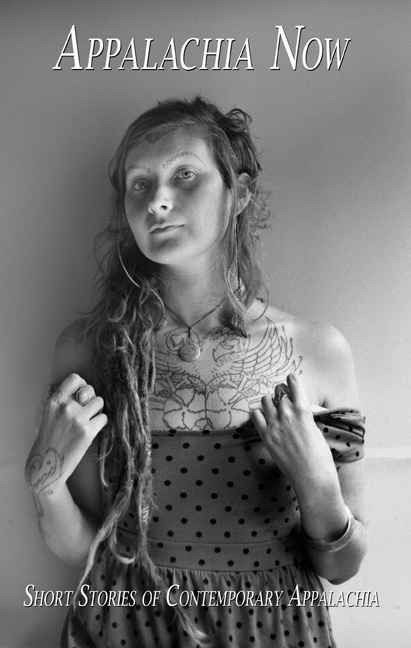


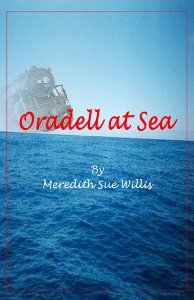
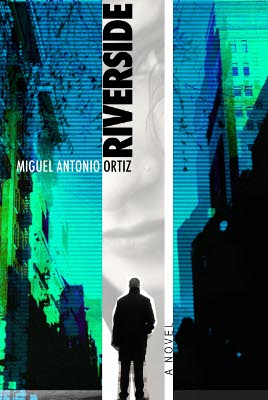

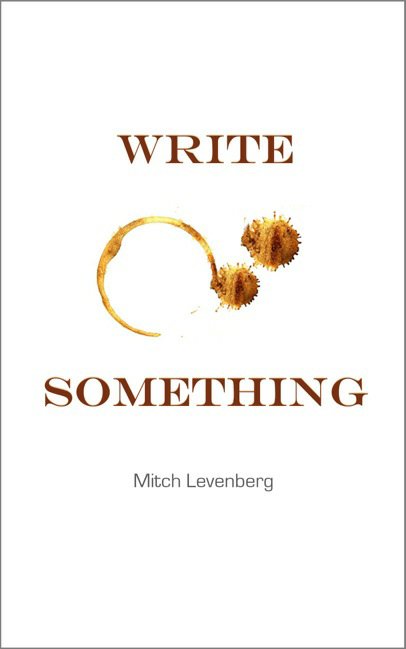


No comments:
Post a Comment